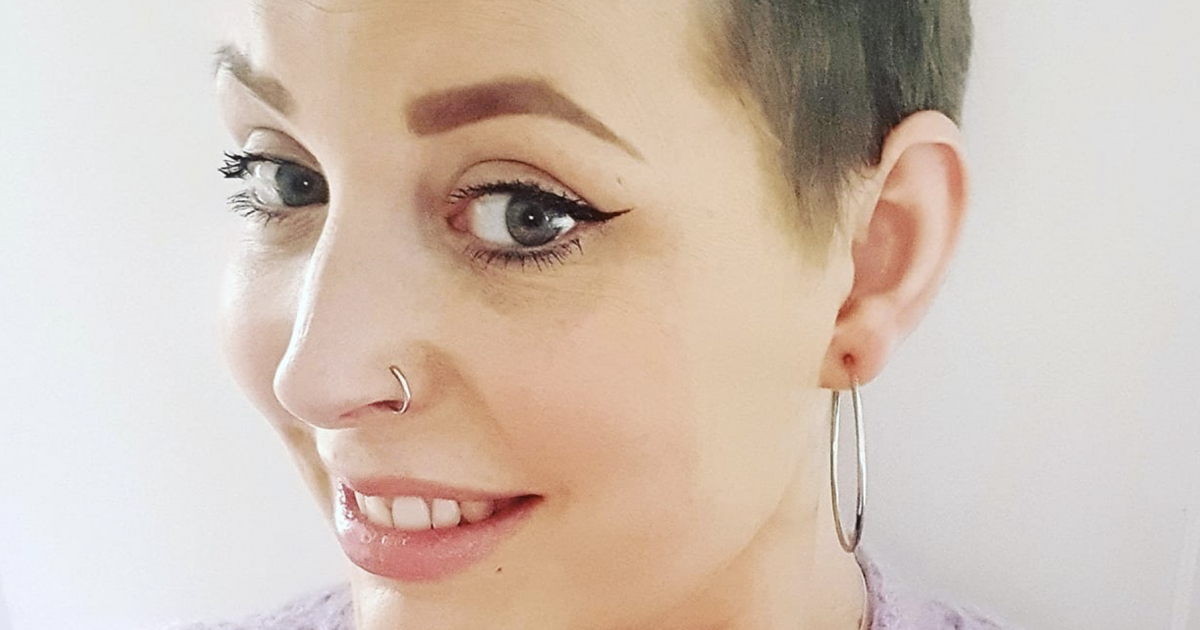A Breast Cancer Survivor Faces Another Battle With The Disease
- Sarah Bennett, 39, could not determine what was causing her constant back pain, and last month decided to ring the nurse who guided her through her breast cancer treatment. A scan revealed she is now has cancer in her liver and spine that is inoperable.
- Bennett, who has two children under 7, finished a very intense treatment for breast cancer involving multiple surgeries, a mastectomy, six rounds of chemo, 15 rounds of radiotherapy, and hormone therapy in May. “It has just been a bit of head (expletive)," said Bennett of her recent diagnosis.
- Determining whether or not someone is a candidate for surgery is done on a case-by-case basis and is often determined by assessing the overall health of the patient and the extensiveness of the disease.
Sarah Bennett, 39, told the Manchester Evening News that she could not determine what was causing her constant back pain, and last month decided to call the nurse who guided her through her breast cancer treatment.
Read More
She had barely started to process the trauma of her breast cancer battle, explained Bennett, and she could not even fathom the thought of launching into another intense fight with the disease.
"[Last year], I went into battle. You just get through treatment and carry on. After I finished, I struggled because it's almost like trauma,” said Bennett.
"Then I got the all-clear, but it did not stop there, as I had hormonal treatment, so I was on medically-induced menopause.”
She added: "Then, I got this diagnosis.”
Bennett also pointed out that she is battling inoperable cancer this time.

That does not mean that the mom of Toby, 7, and Maggie, 2, is giving up. She is receiving three weeks of chemotherapy for her liver each month and radiotherapy for her spinal tumor.
And she is doing it while trying to raise her kids and keep a roof over the family’s head, an increasingly difficult prospect since the hairdresser cannot work.
"If it was just me, I would crack on but with the kids, they are too young to know what's happening,” said Bennett.
A friend of Bennett and her fiance, Ryan, did step in to help the family by launching a Go Fund Me to ease the financial burden and allow Bennett to focus on her health.
“Please help my beautiful friends, I love them very much,” wrote Jo Daly. “There is no cure for Sarah this time, but she will fight this with every single inch of her being.”
She then closed out her impassioned plea by stating: “You may say I’m begging, and you'd be absolutely right, please!!!!”
I Wanted My Doctor To Like Me. Then He Missed My Cancer
Determining Eligibility For Surgery
Determining whether or not someone is a candidate for surgery is done on a case-by-case basis and is often determined by assessing the overall health of the patient and the extensiveness of the disease.
Some of the factors that determine this are:
- Cancer Location: If the mass of cells is around a sensitive area, such as the bowels and intestines or inside the liver, there is a high probability that surgery would damage the tissue surrounding the cells during surgery, and therefore the disease could be inoperable.
- Heart Disease: Heart diseases like high blood pressure and hypertension, especially in combination with obesity, can lead to many complications during surgery, including infections, blood clots, and heart attack.
- Diabetes and Comorbidities: Diabetes and comorbidities can lead to slow healing of surgical wounds, an increased risk for infections, and heart and kidney complications.
- Age: Younger patients are more likely than older patients to be surgery-eligible, and older patients can sometimes have unique health complications. Elderly patients are at higher risk for the previously mentioned diseases, and they are susceptible to the natural decline of organ function that comes with advanced age.
- Nutrition: Poor nutritional status can contribute to complications during procedures. If the patient does not display proper nutrition, surgery might not be suitable.
"Decades ago, we would take everyone to surgery first," Dr. Elizabeth Jewell, a gynecologic surgeon at Memorial Sloan Kettering Cancer Center, previously told SurvivorNet.
At that time, she explained, any patient was admitted if surgery could remove all but less than 1cm of the cancerous cells or tumor.
“Over the years, the criteria have changed, and individuals are only eligible for surgery if safe surgery can leave five millimeters of cancer or less inside the body,” said Dr. Jewell. “The ideal situation is if the surgery can leave the patient with no gross residual disease, or no cancerous mass left in the body post.”
Determining Eligibility For Surgery
Learn more about SurvivorNet's rigorous medical review process.


